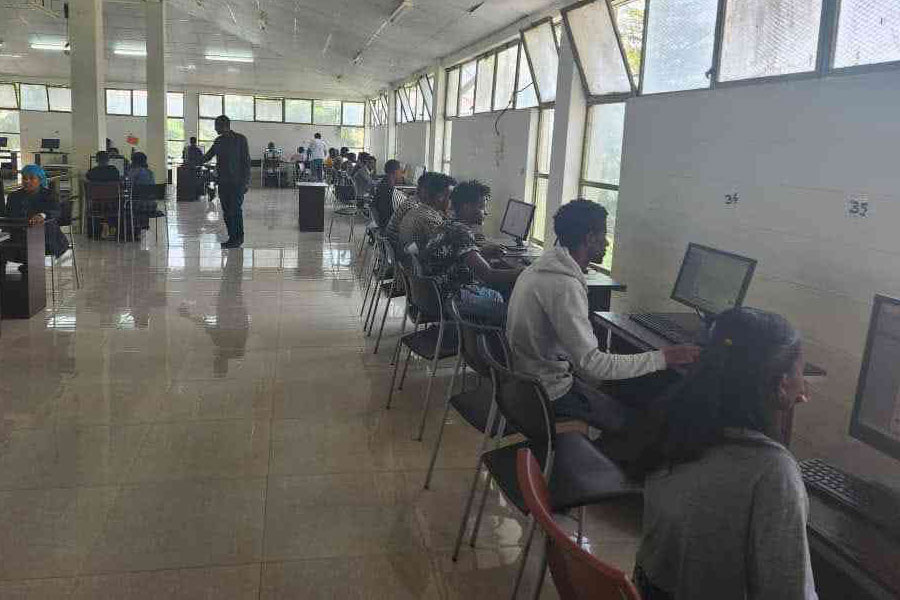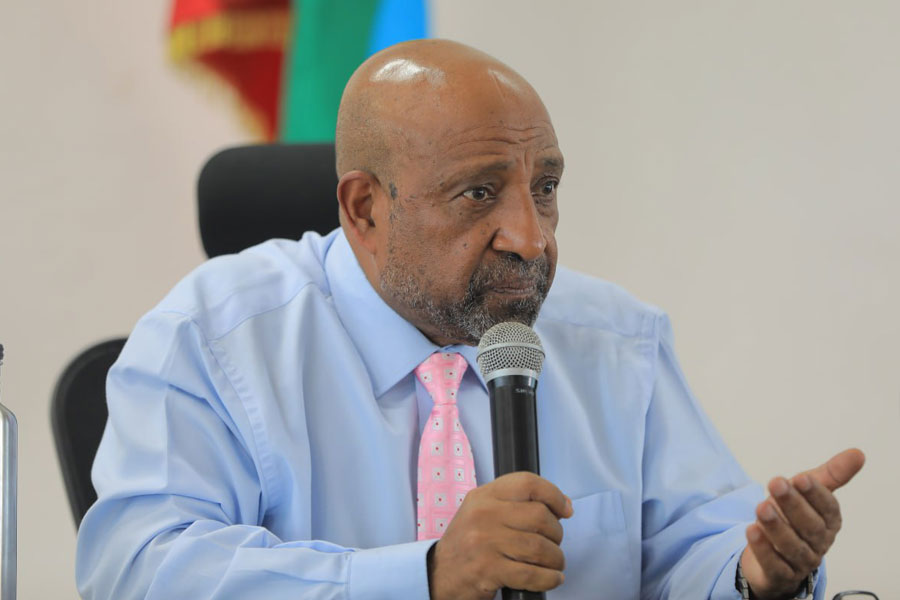
The Ministry of Urban Development & Construction has drafted a proclamation that proposes the establishment of an executive organ in all urban centres to approve building plans, supervise approved building plans, and inspect building construction.
The organs will be set up in every urban centre that has a population size of 2,000 or more inhabitants and with more than 50pc of its labour force primarily engaged in non-agricultural activities.
The construction sector has been embroiled in massive corruption problems, implementation inefficiency, construction completion delays, poor construction quality and wasted resources, according to Teweodros Tegegne, bureau head of construction industry working improvement at the Ministry.
With the existing proclamation, a building officer appointed by an urban administration is mandated to deal with building approvals and inspections. The Ministry identified this as a loophole since power is concentrated in the hands of the building officer, leading to corruption and inefficiency.
The amended bill, which was drafted in collaboration with 36 professional associations, transfers the powers and duties from persons to institutions.
“Institutionalisation will significantly transform the recurrent challenges to the sector,” said Tewodros. "The building officers were also hesitant about giving decisions, fearing the negative consequences of their decision-making."
City administrations and regional states can also draft regulations, protocols and directives in harmony with the proclamation, according to the bill, which consists of 10 parts and 52 articles.
“As long as there are different contexts related to capacity and other factors, there should have been asymmetrical considerations,” Tewodros said. “This draft allows flexibility and decentralisation.”
Regional states can determine the nomenclature and structures of the executive organ. The regulatory organ will constitute a building officer and necessary staff and different organisational structures.
The flexibility and power decentralisation is for the advantages of lower tiers of authorities, because they allow efficiency, according to Tesfaye Temesgen, communications officer at Oromia Urban Development & Housing Bureau.
“It promotes local understandings of local matters since it permits urban administrations to determine service fees and fines,” said Tesfaye.
Amanuel Teshome, president of the Ethiopian Architects Association, said that the bill should have been professional-centred rather than transferring all the powers to the executive organ.
“The building officer should instead be given enough power to deliver its duties,” he said. “The institution orientation of the draft undermines the significance and professions of the individual.”
The sector annually issues 50,000 to 60,000 building construction permits and building occupancy permits throughout the country.
The bill gives two years of validity of approved designs for buildings not exceeding two-storeys and three years of validity for buildings with more than two-storeys not exceeding 12m heights. It provides five years for public or institutional buildings, factory or workshop buildings with a height of more than 12m. The existing law gives a blanket five years of validity for all construction projects.
New grievance hearing boards will be formed in every urban centre. After hearing the cases and looking into them, the draft bill mandates that the board make final decisions on such issues. Currently, grievances are being appealed to the mayor's office.
The preamble of the draft does not enumerate the main reasons for the amendment found by consolidated studies, according to Baymot Tsegaye, an architect and urban designer for more than a decade.
“Properly conducted studies should be completed before amending or changing the existing proclamation,” he said. “It failed to incorporate minimum service standards to clients regarding design review, plan approval, and construction commencement issuance.”
The draft lacks a provision that deals with contracts between the client and designer that describe the scope of the work, service fees, and delivery time, according to the expert.
“The presence of terms of a contract between the client and the designer would expose the identity of the designer and avoids government authorities from pressuring the clients to award them with the design,” said Baymot. "Absence of terms of a contract will result in informal and unethical practices in the sector."
Designs of urban planning criteria, hazard protection and health and safety should have remained in the hands of government institutions, and detailed architectural design and planning should go to private consultants, according to Baymot.
"The design or plan review should be given to independent consultants,” recommended Baymot. “There may be a conflict of interest by the authorities who may pressure the owners of the construction project to award the project to their affiliates."
The expert recommends that the draft should set the minimum service fee to review, approve the building design and issue construction permits.
“Hence, the contractor may deal with the authorities by offering them something of value in return for allowing the contractor to construct a building at a lower quality than specified in the design contract,” he said.
“The draft should outlaw charging service fees that are less than input costs, as it resulted in low quality of service provisions and unfair competition in the past,” said the expert. “Eighty percent of the buildings in the capital are privately owned; henceforth the impact of such problems will pose great challenges.”
Baymot also urges that the designer be made to supervise and inspect the construction of the building.
PUBLISHED ON
Jun 27,2020 [ VOL
21 , NO
1052]

Radar | Jan 11,2020

Agenda | Jul 08,2023

Fortune News | Mar 09,2024

Radar |

Fortune News | Nov 03,2024

Fortune News | Jul 27,2019

Radar | Jul 20,2019

Radar | Sep 01,2024

Radar | Oct 28,2023

Fortune News | Aug 06,2022

Dec 22 , 2024 . By TIZITA SHEWAFERAW
Charged with transforming colossal state-owned enterprises into modern and competitiv...

Aug 18 , 2024 . By AKSAH ITALO
Although predictable Yonas Zerihun's job in the ride-hailing service is not immune to...

Jul 28 , 2024 . By TIZITA SHEWAFERAW
Unhabitual, perhaps too many, Samuel Gebreyohannes, 38, used to occasionally enjoy a couple of beers at breakfast. However, he recently swit...

Jul 13 , 2024 . By AKSAH ITALO
Investors who rely on tractors, trucks, and field vehicles for commuting, transporting commodities, and f...

Oct 11 , 2025
Ladislas Farago, a roving Associated Press (AP) correspondent, arrived in Ethiopia in...

Oct 4 , 2025
Eyob Tekalegn (PhD) had been in the Governor's chair for only weeks when, on Septembe...

Sep 27 , 2025
Four years into an experiment with “shock therapy” in education, the national moo...

Sep 20 , 2025
Getachew Reda's return to the national stage was always going to stir attention. Once...